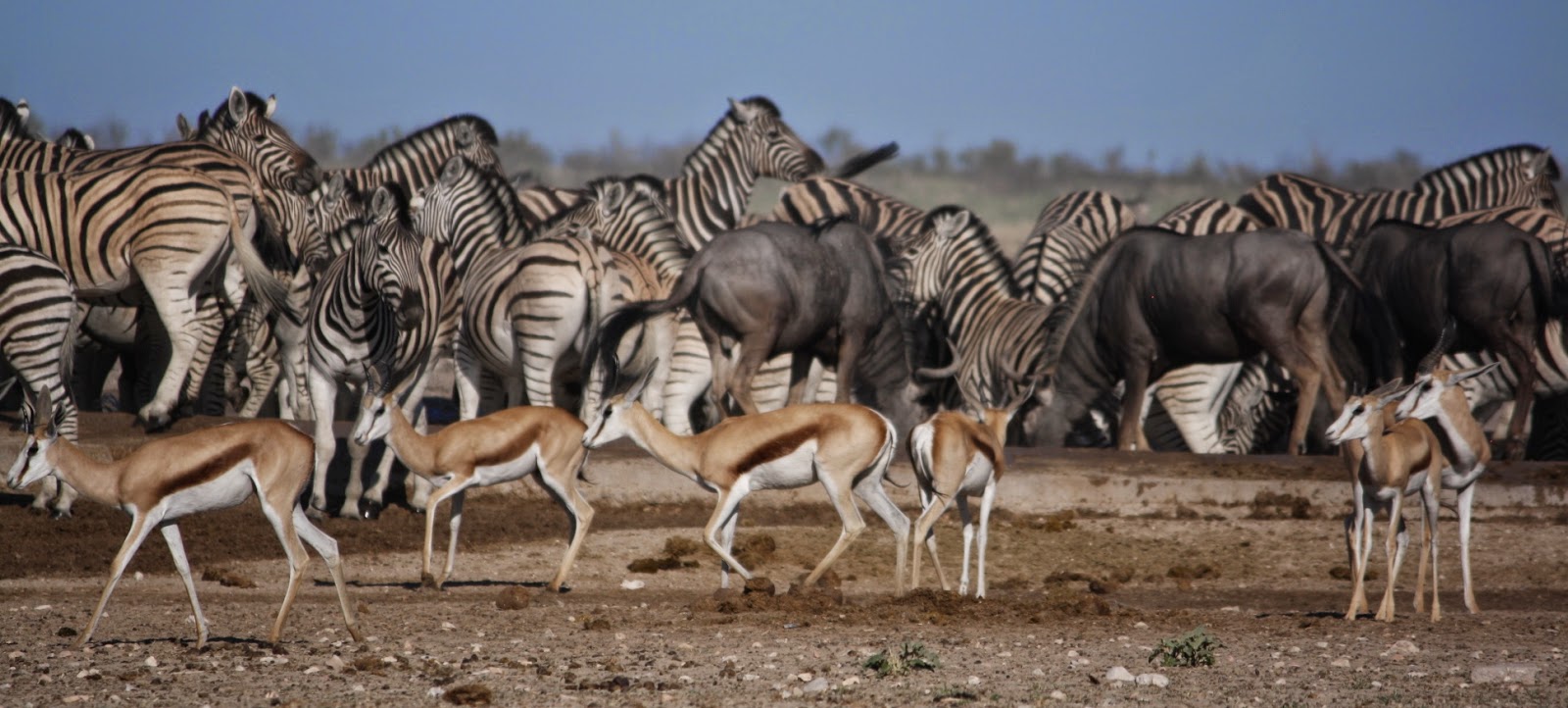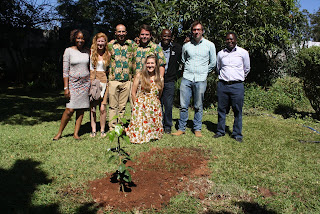When I first came home from being gone for nearly three and a half years I was overwhelmed with the United States. We've got ease, efficiency, order, uniformity, and a lack of recklessness. I had come from a place where nothing works, everything is bargained for and the apathetic shrug of a person's set of shoulders is sometimes enough of an explanation for any number of situational let downs, but here in America there didn't need to be any explanation... everything was functioning. And functioning at a high level.
We have ice in our drinks, the air when too warm is quickly supplemented with machine-cooled currents, my internet has never once failed, and all of this is built upon an electric grid that rarely, if ever, leaves users in the dark. That's a point for America.
Whereas Zambia... well, they've had some electrical problems since my departure (of course, not because of me): Zambia Dries Up.
Yet, I'm drawn back in memory to Zambia. Because America is, as my friend Joey describes it, a theme park. "America Land: the exceedingly safe, borderline unfriendly amusement park with freaking amazing concessions" is his exact description. Neat and tidy - the reality of Americans, but not the reality of the world.
 |
| Chaos is shenanigans like this: people in a boat that's being towed, a kid stepping into the photo that I'm trying to take, and dust being kicked up ALL DAY LONG. I miss that. Who would've guessed? |
I'm drawn to the chaos and recklessness and the ease at which I could chalk up missteps and mistakes to "the way it is." I miss the unwanted heat, the certainty that at some point in the day something (or more likely someone) will fail you, and even the odors I have a nostalgic fondness for. That all sounds crazy, but I'd become accustomed to these things and suddenly they're gone. Replaced with efficiency, sterilization, and... cleanliness.
Nice and neat is fine in the confines of perfection, but the world's not perfect and being in a place that is readily accepting of that is comforting. I miss that. I suppose in how it is being back I could simply say, "I miss it."
Hypothetically, I could live in Zambia for the rest of my life and not understand what was happening there (no one does). I miss the Zambians' way of understanding that things will happen (good, bad, in-between), while Americans constantly try to skew life's equilibrium in their favor with a minimal amount of bad and a large serving of good. When that equilibrium snaps back in the States it is frightening to most. In Zambia, and probably Africa as a whole, it is a part of life. That's how life goes sometimes. People are accepting of that. They have to be.
I've become accepting of that. John Steinbeck once wrote what good is sweetness without bitterness? Likewise, how would we know true success if we've not failed; happiness if we've not known despair; and richness without seeing poverty? I accept all of this. But, I've accepted more.
 |
| That Steinbeck quote is from Travels with Charley. Steinbeck got it. He saw that life is a combination of ups and down, and not always a collection of good days. |
A colleague I'll be working with at Indiana said this about my recognition of life in Zambia. "It won't last forever, over time your memory and knowledge of what's happening on the ground will atrophy." That scares me to death. I take that to mean if I can't remember how it is / know how it is in Zambia then that knowledge has been replaced with something else. And maybe that "something else" is more American - more safe and not so disordered and confusing. But I don't want that.
I needed to leave Zambia when I did - I was tired of justifications and the governmental apathy - however I don't want to come back full circle by shaking off what it was I learned there, what I took in, and what it was that kept me there for over three years. Zambia really is an incredible place for service, and one that taught me plenty.
Being back has been great - don't get me wrong. I've gotten to settle in comfortably enough, my drinks are filled to the brim with readily available ice, and as I write this it's humid outside but perfectly cool in my apartment. Life's good. That equilibrium of life is definitely favoring me right now, but I somehow still believe I'd be slightly more content (not happy! but content) with some dust, strange smells, and imperfection in the air.
 |
| In my version of the American Theme Park there is only Rhubarb Oolong iced tea to drink. And it's always icy cold... maybe too cold, in fact. |










